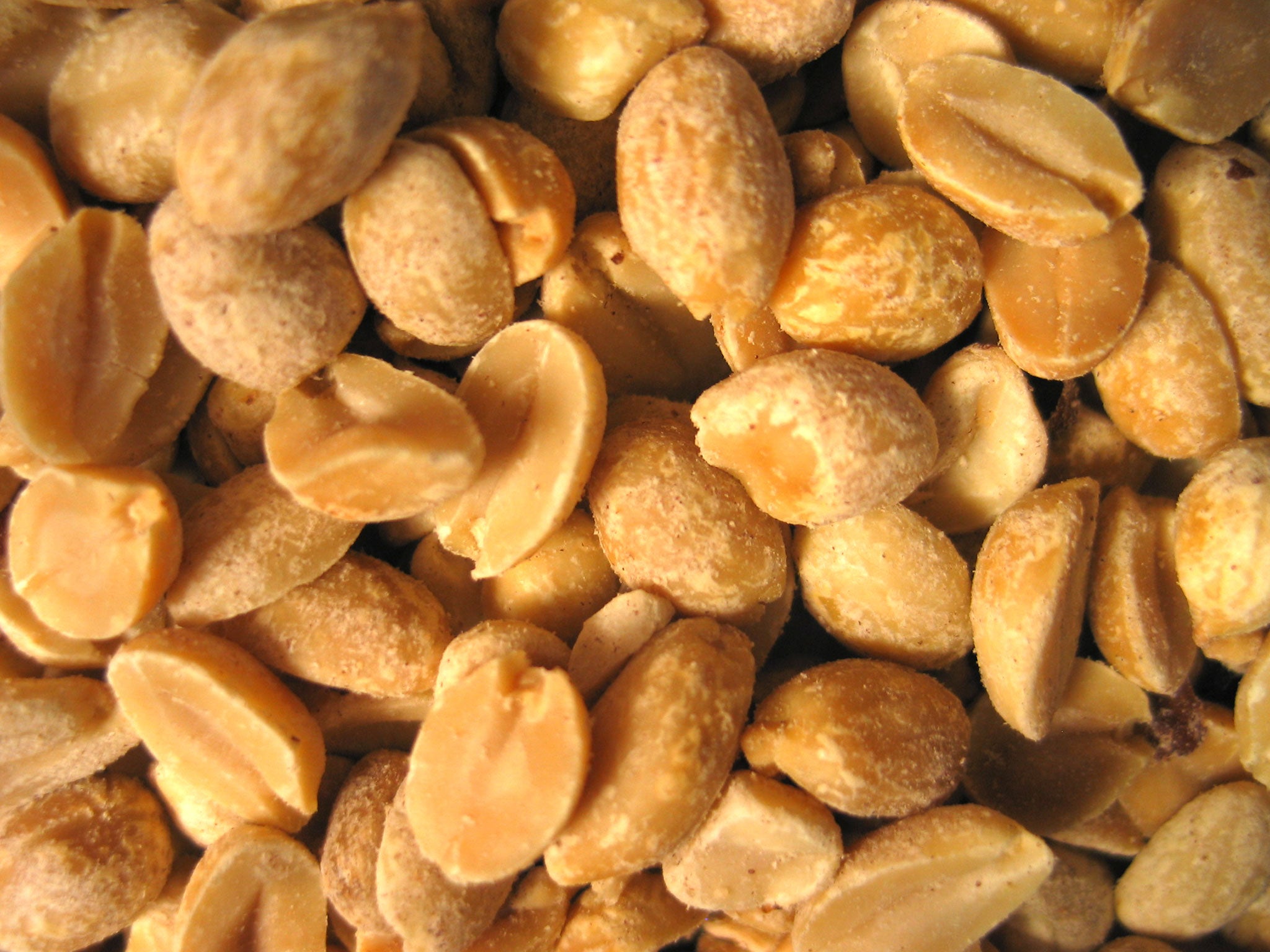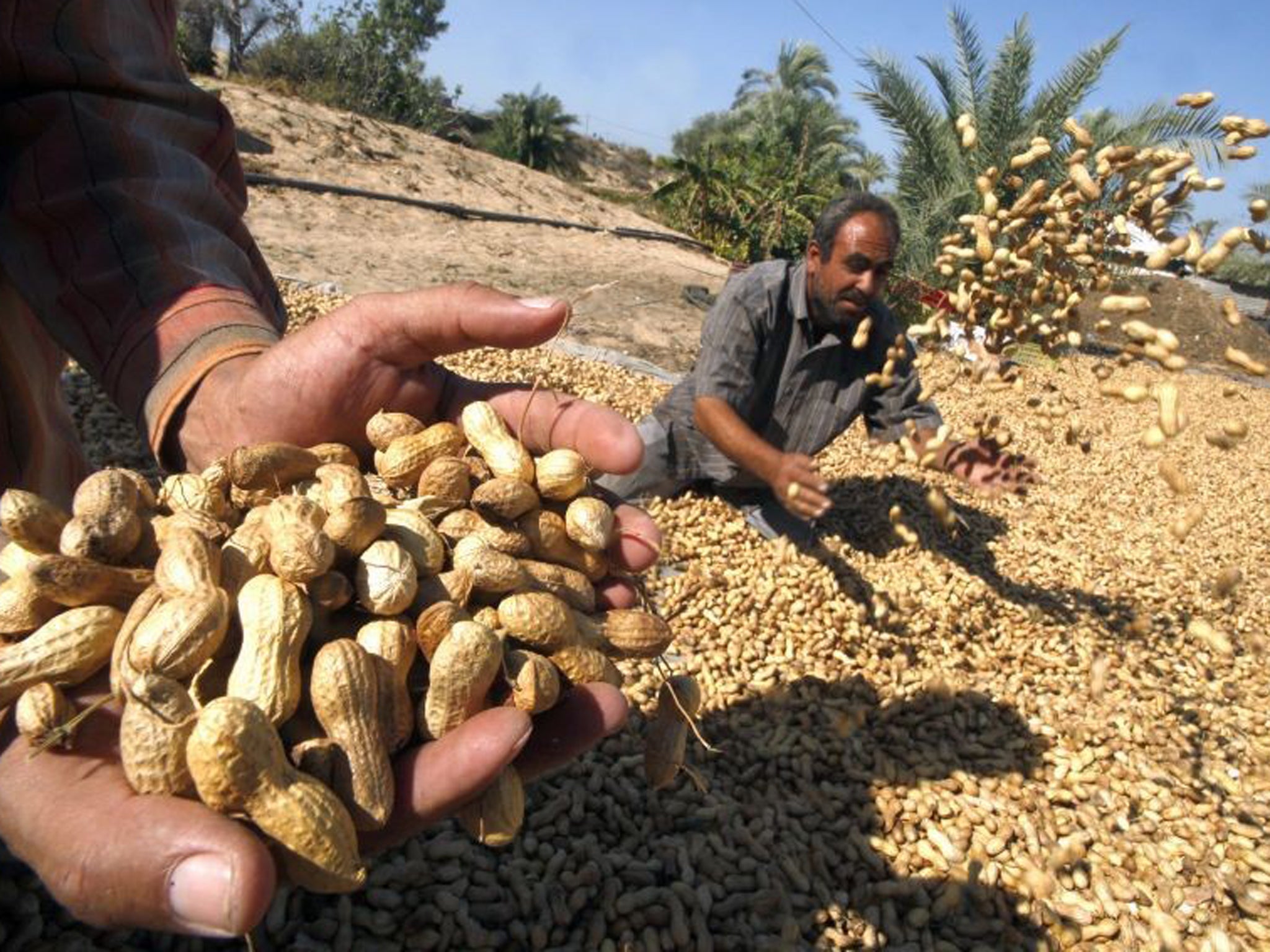More peanuts in the diet could reduce premature death in the world's poorest
The first time that scientists have looked at peanut consumption in different racial groups

Your support helps us to tell the story
From reproductive rights to climate change to Big Tech, The Independent is on the ground when the story is developing. Whether it's investigating the financials of Elon Musk's pro-Trump PAC or producing our latest documentary, 'The A Word', which shines a light on the American women fighting for reproductive rights, we know how important it is to parse out the facts from the messaging.
At such a critical moment in US history, we need reporters on the ground. Your donation allows us to keep sending journalists to speak to both sides of the story.
The Independent is trusted by Americans across the entire political spectrum. And unlike many other quality news outlets, we choose not to lock Americans out of our reporting and analysis with paywalls. We believe quality journalism should be available to everyone, paid for by those who can afford it.
Your support makes all the difference.Peanuts have been linked with a lower risk of heart disease and premature death according to scientists who believe that adding them to the diet may be a cheap and effective way of improving the health of the poorest people in society.
A study based on analysing the long-term health of three different populations of poor people – two in China and one in the United States – found that a diet rich in nuts or peanut products was associated with low levels of cardiovascular disease and low mortality.
It is the first time that scientists have looked at peanut consumption in different racial groups – Chinese, African-American and white American – at the lower end of the socioeconomic scale and found a possible protective effect against heart disease and an early death, the researchers said.
Previous studies have suggested that nuts, which are rich in unsaturated fatty acids, fibre, vitamins, phenolic antioxidants, arginine and other “phytochemicals”, may protect against heart disease, but this earlier research was mostly done on better-off people of white European descent.
The latest study was a meta-analysis of 11 previous studies. In three of them, involving 71,764 low-income white and black men and women living in the US and 134,265 Chinese men and women living in Shanghai, the researchers found a significant link between peanut consumption and low levels of heart disease and mortality.
“We found consistent evidence that high nut/peanut consumption was associated with a reduced risk of total mortality and cardiovascular disease mortality,” said the study’s authors, led by Xiao-Ou Shu of the Vanderbilt University School of Medicine in Nashville, funded by the US National Cancer Institute.
“This inverse association was observed among both men and women across each racial/ethnic group and was independent of metabolic conditions, smoking, alcohol consumption and body mass index,” they said in their study published in the Journal of the American Medical Association.
In the US group, those men and women who ate the most peanuts experienced a 21 per cent reduction in the risk of death compared to those who did not regularly eat peanuts or nuts in their diet. In the Chinese group, there was a 17 per cent reduction in mortality.
However, the researchers emphasised that the findings do not prove that eating nuts or peanuts – which are technically a member of the pea family rather than a tree nut – protect someone against developing cardiovascular disease, especially as they have not demonstrated a clear “dose-response” link, meaning that increasing amounts of peanuts lead to increased levels of protection.

“The data do not show that the more peanuts you eat the lower the risk of a fatal heart attack, so people should not start eating large quantities of nuts, particularly salted nuts, in the hope that it will protect them from heart disease,” said Professor Peter Weissberg, medical director of the British Heart Foundation, which was not involved in the study.
“The results suggest that including a modest amount of nuts as part of a well-balanced diet may be of benefit,” Professor Weissberg said.
Tim Chico, a consultant cardiologist at Sheffield University, said that this might be one of those rare occasions when a link between a dietary foodstuff and a lower risk of a medical illness may turn out to be causal rather than simply a correlation.
“Although the current study does not prove that eating nuts definitely reduces the risk of heart disease, I think there is enough evidence to justify recommending a Mediterranean diet including nuts as part of a healthy lifestyle,” Dr Chico said.
“However, the causes of heart disease are multiple and complex and any simplistic solution – like saying ‘eat more nuts’ – is destined to fail,” he said.
Join our commenting forum
Join thought-provoking conversations, follow other Independent readers and see their replies
Comments